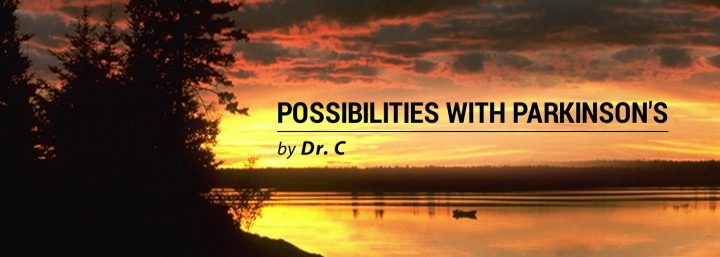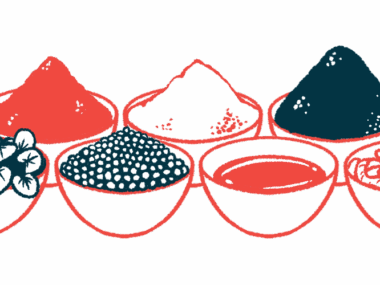Choosing What to Do When Bad Things Happen
Written by |

“I’m still not feeling well. I should go to the doctor,” said Mrs. Dr. C with a pained look.
I gave her a quick glance and without even a hesitation in garden shoveling, said, “OK. It’s important you attend to your health.” She asked if I would like to go with her. I replied, “Not this time. I really want to get this part of the garden done today.” The rest of the afternoon was consumed by this garden goal. And I know she was disappointed.
I chose to direct all my attention and energy to this goal alone. I chose to ignore the little things that amplified my emotions one moment at a time. I chose to ignore what I call my “little things practice.” I watched as those unattended little moments began to crescendo. And yet, I chose to ignore the warnings, maintaining my attention on that precious garden goal.
The consequences were felt in my personal relationship as the emotional flooding became nearly unmanageable. I knew I had chosen an unhealthy path, yet I felt powerless to choose another. At the time, it seemed especially important to me that I complete the garden goal. Looking back, I can see that the failure to attend to the little things in favor of a singular goal resulted in negative consequences both personally and interpersonally.
Putting the little things practice in place is difficult under the best conditions, but it’s much more challenging when bad things are happening. This includes dealing with a chronic disease like Parkinson’s, having a partner with a chronic disease, facing a pandemic, and feeling frustrated by tasks others haven’t done correctly when settling into a new home.
Little things practice requires that I focus my attention on the little things. Bad things can consume my resources because of the energy needed for problem-solving or the energy used for coping. When the number of stressors and demands on my attention exceeds my available resources, I can get overwhelmed and end up at that precipice of threshold management. I can’t engage my little things practice when approaching that precipice because the resources needed are being used elsewhere.
In a previous column I talked about brain therapy and training the conductor who oversees the Grand Central Station in our brain. Think of the conductor as the attention director. Sensory, memory, and emotional stimuli come into the Grand Central Station. The conductor helps decide which stimuli are the most important and thus need to be granted quicker access and more attention. This is especially true when learning a new skill like little things practice.
After some years of skill-building, memory comes into play and it gets a bit easier. But in the beginning, it’s like stepping off a four-lane highway and bushwhacking your way through the forest to carve out a new path. The new path of little skills practice is used to replace an old history of coping skills, many of which are no longer effective.
The brain is capable of growing new neurological connections, provided that the brain is not so damaged that the connections can no longer grow through that cerebral space. When that happens (and there are lots of ways to create damaged areas of the brain), then the challenge is to develop compensatory strategies that will support neurological connections growing around the damage — bushwhacking that new path through the forest. The conductor will need to be called upon to redirect attention to the new path, the path of little things practices — whether through or around.
For me, it is much like putting in new gardens: it takes time, patience, persistence, and support. It will take years for the new gardens to form as they have in previous homes. It will also be so with my progress on little things practice.
As I’m bushwhacking that new path of little things practice I know I will fail. I will return to old habits, walking that easy four-lane highway instead of stumbling around in the forest. I must call upon the conductor continually throughout the day to direct the attention needed. Right now, in the early stages of my skill development, this is often draining. It is working. It is helping. But it is frustratingly slow!
***
Note: Parkinson’s News Today is strictly a news and information website about the disease. It does not provide medical advice, diagnosis or treatment. This content is not intended to be a substitute for professional medical advice, diagnosis, or treatment. Always seek the advice of your physician or another qualified health provider with any questions you may have regarding a medical condition. Never disregard professional medical advice or delay in seeking it because of something you have read on this website. The opinions expressed in this column are not those of Parkinson’s News Today or its parent company, Bionews Services, and are intended to spark discussion about issues pertaining to Parkinson’s disease.






Mary Schulz
Has anyone with Parkinson ever had botox bone pain? Burning bone pain
Dr. C
Hi Mary ~ Thank you for reading my columns. Your question is outside my scope of practice so I cannot provide any answers. It is always best to discuss with your provider any symptoms and concerns that you have. I hope you find an answer.
Dr. C.
Derek C. Marshall
We are all lost souls, on the Wheel...how do we get off?
Dr. C
Hi Derek ~ We are all touched by darkness in some way. See my latest article on the "little things practices" on taking the first steps, get out of the spinning cycle, and take that first little step. Maybe that will provide some inspiration and help encourage those first steps. Blessings on your quest.
Dr. C.